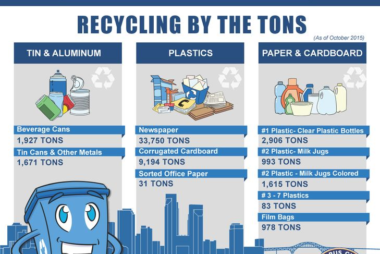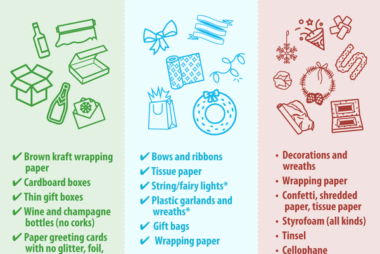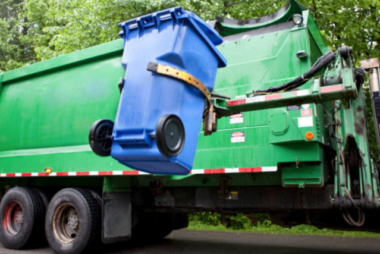Turning Trash into Treasure: The USA’s New Frontier in Waste Recycling and Sustainability
United States waste recycling, a new economic and ecological challenge
Many American cities are drowning in waste since China stopped buying it for recycling. A situation which has led Americans to a certain ecological awareness. To have less waste to recycle, it is better to produce less.
Hundreds of American cities are no longer able to recycle their waste since China refuses to take charge of it. So some localities dump their recyclable waste in landfills, waiting to find a solution. For some, this is obvious: consume less plastic. So states, cities and associations are pushing Americans to change their habits.
What we are doing is a charade. Some residents of Corpus Christi, Texas are very attentive to sorting their waste. The jar of peanut butter, which is greasy, they put it in the dishwasher before throwing it in the blue trash can. They thus clean all this waste for better recycling, which is a bit ridiculous. Except that for six months, half of the city’s recyclable waste has ended up in the incinerator, burned with rubbish.
When we learned that this recycling was not real, our heads exploded, according to a resident who learned about this situation in the press. Imagine a city of half a million inhabitants that does all this so badly. It’s absurd. What they are doing is a masquerade.
When China no longer wants to be the world’s recycler
And why does Corpus Christi no longer recycle all this waste even though it is conscientiously sorted by its residents? The answer lies more than 10,000 km away, in China. The country bought the vast majority of American recyclable waste: 4,000 containers filled with plastics every day. But overnight, Beijing closed its doors, arguing that this activity was no longer profitable enough and too polluting. China no longer wants to be the world’s recycler. For lack of an outlet, American recyclable waste has lost its value.
And with this trade ceasing, an entire sector is in difficulty. The market in the United States is dry, no one wants to take our materials like glass, cans, bottles” laments a company owner which collects waste for resale. They were paid 30 dollars per ton, but now it just costs five dollars per ton. For its part, the city of Corpus Christi, which made money by selling its waste, suddenly found itself with an astronomical bill to have it treated.
A certain ecological awareness
The United States therefore finds itself with mountains of waste on its hands, which raises awareness even if the Americans remain the largest producers of waste in the world. There is a growing movement to stop overconsuming disposable products. New York has just banned single-use plastic bags, California has done the same for plastic straws. But the best solution would above all be to have less waste.
From May, a new service will bring the deposit system up to date. With The Loop, who is at the origin of the project, wants to offer to fill containers with everyday products, from shampoo to olive oil to replace packaging disposable with reusable containers. Ice creams would thus be sold in steel pots rather than cardboard. We come directly to collect the containers from you, we take them away, we clean them and we give them back to the producers who refill them. And here they are again on the circuit!
When your bottle no longer has orange juice or your pot of ice cream is finished, you throw them away. Except that you do not throw them in a normal trash can or for recyclable waste but in a bin for reuse. No need to clean or sort, we come directly to collect the containers from your home, we take them away, we clean them and we give them back to the producers who refill them. And there they are returned to the circuit.
Waste management experts convinced 25 of the world’s largest groups to participate: Procter and Gamble (Oral B, Swiffer, Pampers), Unilever (Ben&Jerry’s, Amora, Dove), Nestlé or Haagen-Dazs and even Carrefour. It is in Texas that this service will be launched first, before arriving in New York. It will then expand to Europe and Japan, hoping to revolutionize the way we consume, and therefore throw away.



